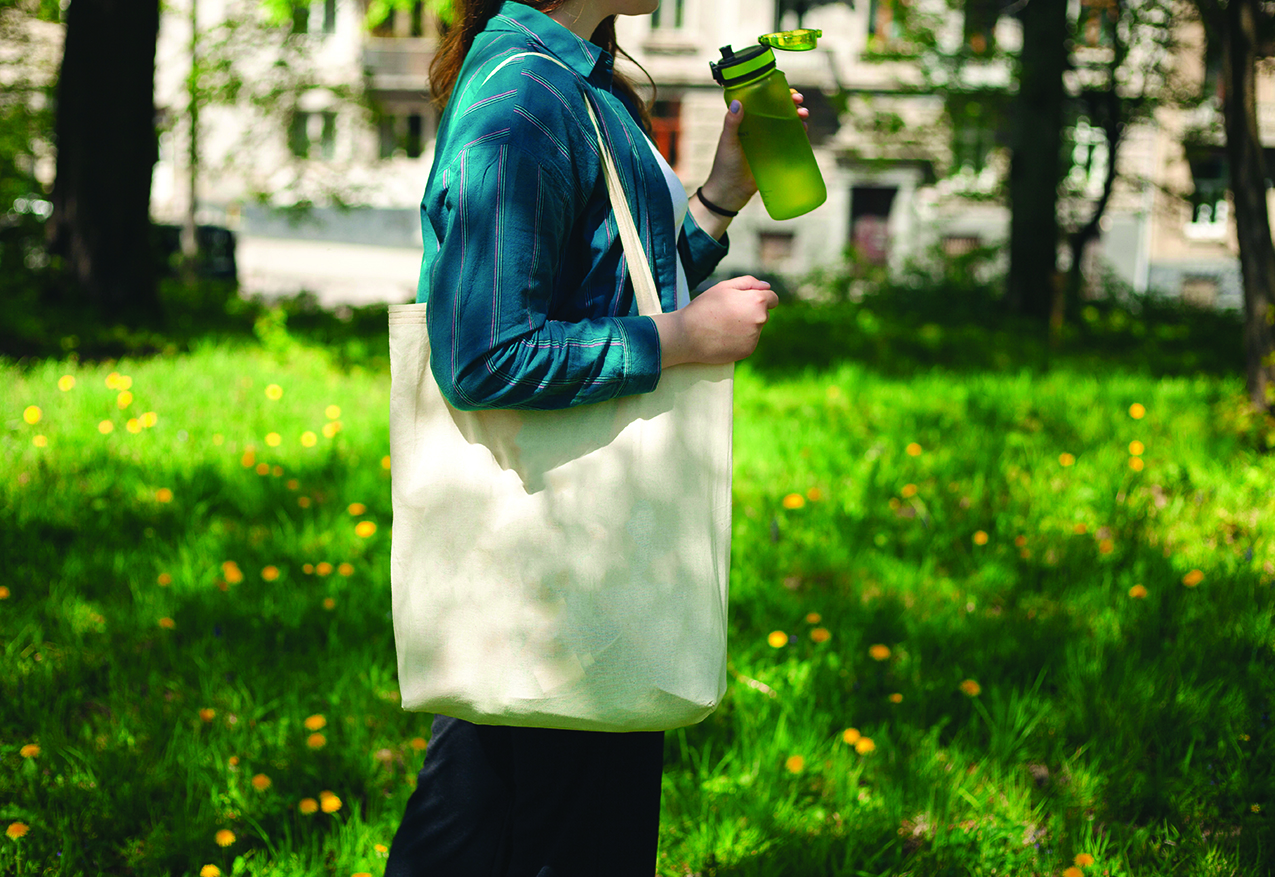HEALTHY LIVING
Stress less on your next family vacation

6 tips for a laid-back getaway
(Family Features) A vacation is all about getting away and taking a break from the pressures of daily life. Some smart planning and the use of handy travel apps can help ensure your next adventure is a stress-free success.
Create a Travel Buffer
When booking your trip, plan an extra day or two on the front and back ends of your travel itinerary. This provides you with optimal time to finalize preparations, organize your packing and avoid last-minute scrambles. On the return trip, the added day gives you some cushion so you don’t have to stress about getting back to work if there are travel delays. You’ll also have a chance to unpack, unwind and settle back into your home before diving back into your daily grind.

Get Smart About Saving
One easy way to take the stress out of vacation planning is to use digital resources to save time and money. An option like a sightseeing pass from Go City offers savings on attractions and activities. A single pass grants access to multiple iconic landmarks and unmissable experiences in more than 25 cities across four continents. For example, in San Antonio you can take advantage of a Natural Bridge Caverns discovery package, or in New York City, you’ll be able to access the iconic and family-friendly exhibits at the Empire State Building.
Know When Less is More
Overpacking may seem like a strategy for reducing stress, since you’ll be prepared for whatever comes your way. However, many travelers find the opposite is true. Packing light means you’re more agile when it comes to transportation and have fewer things to keep track of or worry about losing. An added benefit: with fewer wardrobe options, you can focus your attention where it really belongs – enjoying your destination.
Keep Plans Loose
A rigid agenda only causes angst. The reality of travel is that you’re likely to, somehow or someway, get off schedule and fall behind. The ripple effect can quickly throw off an entire day, so a better bet is to keep plans flexible. With Go City’s mobile-based passes and flexible plan-as-you-go capabilities, travelers have the freedom to set their own schedules. It’s no problem if you decide to linger over breakfast on your visit to Los Angeles; the whale watching adventure will be there when you’re ready. If you decide to make a stop at the beach on your San Diego getaway, no worries. You’ll still be able to scan your pass for kayaking later that day or even following days.
Prioritize Sleep and Relaxing Activities
You may be tempted to make the most of every moment of your trip but allowing ample down time to rest and recharge helps keep everyone feeling fresh and ready to tackle each new activity with enthusiasm. Being tired takes the joy out of traveling, and it can lead to cranky meltdowns among the littlest travelers (and sometimes the bigger ones, too). That doesn’t necessarily mean you have to take a nap every single day, but you might consider alternating extra busy days with more laid-back activities so you don’t find yourself running on empty.
Have Contingency Plans
At home, things don’t always go according to plan, so you shouldn’t expect them to when you’re on the road. While planning for your trip, do some research on backup activities you can do if your original plans fall apart. If rain hampers your day at the amusement park, knowing you can easily access tickets to the indoor aquarium or family-friendly museum nearby can save the day. Use the same mindset when planning for your accommodations and meals. Overbooking and extended wait times won’t foil you if you have alternatives in mind.
Discover more ways to do what you want, when you want on your stress-free vacation at GoCity.com.
SOURCE:
Go City
HEALTHY LIVING
What does 100% grass-fed organic dairy bring to your table

(Family Features) It’s no secret that many grocery store dairy sections are filled with more options today. One choice continuing to gain favor with consumers is 100% grass-fed organic dairy. Nutrition, environmental awareness and animal care are some of the leading reasons consumers choose grass-fed dairy products.
Globally, the 100% grass-fed dairy market is projected to continue growing and some market experts predict annual growth rates as high as 22%. If you’re curious about 100% grass-fed organic dairy, consider these benefits from Maple Hill, America’s original 100% grass-fed organic dairy producer. The pioneer of 100% grass-fed organic dairy took its commitment a step further by celebrating and declaring National 100% Grass-Fed Organic Dairy Day on April 15, which recognizes the positive impact it has on consumers, cows, farmers and the environment.
1. Honoring the Farmers
Unlike large-scale corporate dairy farms, most organic farms are small, family-owned operations dedicated to traditional, sustainable farming. Small dairy farms have been disappearing, but 100% grass-fed organic dairy creates a sustainable, viable path forward for farmers who work in harmony with nature.
This more natural approach to dairy is a “craft” process favoring small family farmers who are willing to dedicate the extra focus and patience to a better product and process. These family farms are passed on to future generations to grow the “better for you, better for the planet” approach.
2. Commitment to Good Health
Most consumers don’t know the difference between traditional organic and 100% grass-fed organic dairy. One key distinction is the products’ nutritional composition; 100% grass-fed organic dairy provides a 50% healthier ratio of omega 3:6 and 40% higher levels of CLA fatty acids, which may support heart health and provide other health benefits.
What’s more, Maple Hill’s products made with 100% grass-fed organic dairy are GMO free, hormone free and antibiotic free with no additives or fillers. The line of high-quality, rich-flavored products let you experience the organic difference from traditional dairy for a nutrient-dense solution that tastes as nature intended.
3. Happy, Healthy Cows
Cows on a 100% grass-fed diet can live up to three times as long as grain-fed cows and are never subjected to unnatural diets, hormones or antibiotics. More time in pastures filled with lush grass means cows have the freedom to roam, ruminate and graze on diverse, nutrient-rich grasses.
The result is happier, healthier cows, which in turn results in a richer, better-tasting and more nutrient-dense milk.
4. Sustainability and the Environment
Producing milk without grain or corn requires farmers to focus on regenerating soil and the soil life that supports everything else on the farm. In fact, the healthier the soil, the healthier the feed, so farmers have a natural incentive to be as regenerative as possible. Regenerative grazing practices are a powerful and positive tool to improve land and the web of life on farms by actively restoring soil health, promoting biodiversity and reducing the environmental impact compared to conventional dairy.
Well-managed grazing helps pull carbon from the atmosphere into the soil, fighting climate change in the process. In addition, healthier soil retains more water, reducing runoff and protecting water sources from agricultural pollution.
5. Strengthening the 100% Grass-Fed Organic Market
Consumers are increasingly aware of the choices they have in dairy products and how 100% grass-fed organic supports their health, farmers, animals and the planet. Some ways to support this category’s continued growth include choosing certified 100% grass-fed organic dairy, advocating for regenerative farming and helping shape a more sustainable food system.
Learn more about 100% grass-fed organic dairy products at maplehill.com.
SOURCE:
HEALTHY LIVING
Promote health with these daily habits

Health should be a priority, but too often life gets in the way and individuals take a reactive, rather than proactive, approach to their personal well-being. But living healthier need not be so difficult. In fact, research suggests that small, positive changes in how a person lives each day creates a healthier person over time.
A Hologic-Gallup survey on the state of women’s health conducted in April 2024 found 63 percent of respondents said it was hard for them to make health a priority. They cited feeling overwhelmed, needing to care for others before themselves, emotional/mental health, and work as the top barriers to focusing on health. But it’s important that both women and men recognize that small changes can add up to big results. These healthy habits can help individuals start living healthier lifestyles.
· Get some exercise. Regular physical activity is one of the most important things a person can do fo his or her health. Exercise helps manage weight, reduces the risk of disease, strengthens bones and muscles, and improves brain health. The Centers for Disease Control and Prevention says adults should aim for at least 150 minutes (30 minutes a day for five days) of moderate-intensity aerobic activity a week. A great place to begin is with a daily walk, which is a simple and effective habit that does not require a lot of time and no equipment except a good pair of athletic shoes.
· Wear sunscreen every day. After washing your face each morning, apply a facial moisturizer with an SPF of at least 30, or blend equal parts of sunscreen and regular moisturizer, suggests Harvard Health. Use it on the face, neck, ears, and any thinning hair spots on the scalp. Skin cancer is the most common type of the disease worldwide, and wearing sunscreen can help many people avoid it.
· Spend time outdoors. It takes just a few minutes in the sun to raise vitamin D levels. Vitamin D is necessary for bone and heart health and helps to boost mood, says WebMD. Various studies indicate spending time in green spaces promotes calm and increases happiness.
· Plan your meals. Meal planning is not just a way to manage food budgets. It’s also a great method to being more mindful of food choices and avoiding impulse buys or meals that may not be as healthy as they can be. Adding more plant-based foods to a diet is a good start. Such foods can reduce the risk of chronic conditions like high cholesterol and hypertension.
· Stay hydrated. Hydration supports good digestion, increases energy and may improve brain performance, states Harvard Health. Drink a glass of water each day upon waking up and with every meal. Older adults often do not feel thirst like they did when they were younger, so it is especially important for seniors to stay hydrated.
Healthy habits are more easily adopted when people begin small and make a daily commitment to their overall health.
HEALTHY LIVING
Make a smart home investment with an all climate heat pump

(Family Features) If your home uses a conventional heating and cooling system, you may wonder if there’s a better way to manage indoor comfort. Between rising energy costs and concerns about the efficiency of conventional systems, many homeowners are exploring alternatives. One popular solution is an all-climate heat pump.
All-climate heat pumps are the next generation of heat pump technology built for peak performance, regardless of the outdoor temperature. From the personalized comfort all-climate heat pumps deliver to the energy savings realized, it’s no wonder more homeowners are considering going all-in on all-climate.
If you’re considering replacing your current HVAC system, read on for some of the benefits of all-climate heat pumps.
Personalized Comfort
Ductless, multi-zone, all-climate heat pump systems are designed to deliver personalized, room-to-room temperature control tailored to your preferences. Unlike traditional ducted unitary systems, which typically operate on an all-or-nothing basis, ductless multi-zone solutions provide individualized climate settings for each space. Whether you prefer a warmer living room or a cooler bedroom, the flexibility to adjust each zone offers unparalleled convenience and energy efficiency.
Efficiency
According to a survey of U.S. homeowners commissioned by Mitsubishi Electric Trane HVAC US (METUS), 93% of homeowners surveyed with conventional HVAC systems reported concerns about utility bills. Seventy-five percent of those surveyed also consider energy efficiency always or often when considering home improvements.
Conventional heating and cooling systems run at full capacity to reach set point and then shut off. The start-stop action ultimately wastes energy. With variable-capacity capabilities and inverter-driven technology, all-climate heat pumps can adjust and maintain temperatures, lessening your home’s overall energy demand and driving down cost.
Cost Savings
The cost savings provided by efficient energy usage are evident. Additionally, some states offer rebates for new HVAC systems, and many contractors offer financing options, which make the upfront cost of an all-climate heat pump installation more affordable.
Reliability is another cost-saving factor. All-climate heat pumps are purpose-built with durable materials to perform well in all kinds of weather.
“We continue to educate homeowners about the advantages all-climate heat pumps have over conventional HVAC systems,” said Mark Kuntz, Chief Executive Officer, METUS. “As homeowners become more knowledgeable about the numerous benefits, including personalized comfort, energy efficiency and cost savings, we believe they will increasingly install these next-generation systems in their homes.”
Learn more about how you can better manage your home’s indoor comfort with all-climate heat pump technology by visiting mitsubishicomfort.com.
SOURCE:
Mitsubishi Electric
-

 NEWS2 years ago
NEWS2 years ago2 hurt, 1 jailed after shooting incident north of Nocona
-

 NEWS1 year ago
NEWS1 year agoSuspect indicted, jailed in Tia Hutson murder
-

 NEWS2 years ago
NEWS2 years agoSO investigating possible murder/suicide
-

 NEWS2 years ago
NEWS2 years agoWreck takes the life of BHS teen, 16
-

 NEWS2 years ago
NEWS2 years agoMurder unsolved – 1 year later Tia Hutson’s family angry, frustrated with no arrest
-

 NEWS2 years ago
NEWS2 years agoSheriff’s office called out to infant’s death
-

 NEWS2 years ago
NEWS2 years agoBowie Police face three-hour standoff after possible domestic fight
-

 NEWS2 years ago
NEWS2 years agoDriver stopped by a man running into the street, robbed at knifepoint






